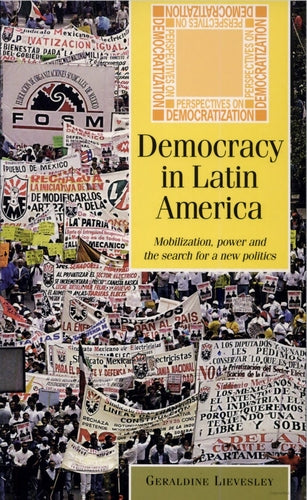Description
Discover a comprehensive examination of democracy in Latin America with 'Democracy in Latin America.' This insightful book, published by Manchester University Press, delves deep into the democratic processes and political institutions that shape Latin and Central America today. An essential read for students, researchers, and anyone interested in Latin American politics, this book navigates the complex political landscape of the region.
In 'Democracy in Latin America,' author Livvesley engages with critical themes such as citizenship, power dynamics, and the political transitions from military regimes to civilian governance. The book carefully analyzes the various political systems present in Latin American countries, including evaluations of liberal pacted democracies versus radical participatory models.
Lantifield unique perspectives provide a rich understanding of the challenges posed by popular movements and leftist politics, revealing how deeply democracy is ingrained within these diverse cultures. By exploring the interactions between state, military, political parties, and social movements, this book aims to shed light on the prospects for a new and inclusive political framework that champions social justice against exclusionary systems.
Perfect for undergraduates seeking to build a strong foundation in Latin American political studies or postgraduates looking for stimulating debates, 'Democracy in Latin America' is more than just a book—it's a vital resource for understanding the ongoing evolution of democratic practices in Latin America.
In 'Democracy in Latin America,' author Livvesley engages with critical themes such as citizenship, power dynamics, and the political transitions from military regimes to civilian governance. The book carefully analyzes the various political systems present in Latin American countries, including evaluations of liberal pacted democracies versus radical participatory models.
Lantifield unique perspectives provide a rich understanding of the challenges posed by popular movements and leftist politics, revealing how deeply democracy is ingrained within these diverse cultures. By exploring the interactions between state, military, political parties, and social movements, this book aims to shed light on the prospects for a new and inclusive political framework that champions social justice against exclusionary systems.
Perfect for undergraduates seeking to build a strong foundation in Latin American political studies or postgraduates looking for stimulating debates, 'Democracy in Latin America' is more than just a book—it's a vital resource for understanding the ongoing evolution of democratic practices in Latin America.

